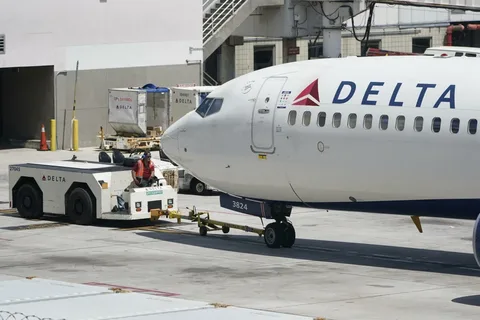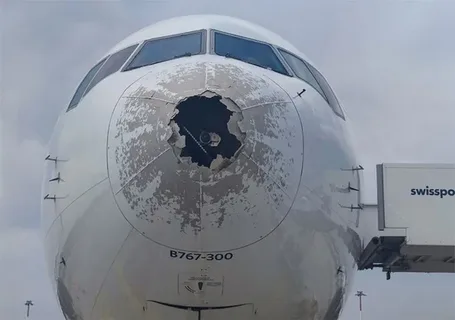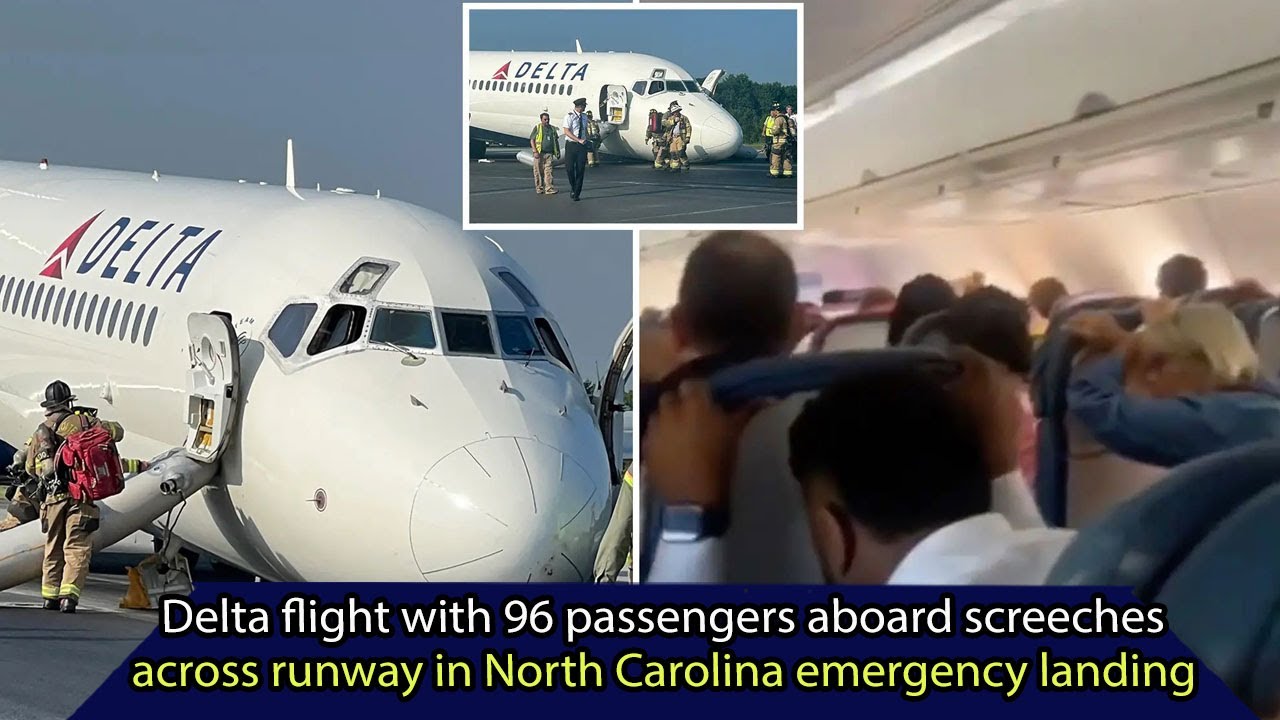Introduction
Delta Flight DL67 Emergency, traveling from Rome to Atlanta, experienced an emergency that required it to divert to Paris. Let’s dive into the story of Delta Flight DL67 and how the crew handled the situation to ensure everyone’s safety.
What is Delta Flight DL67?
Delta Flight DL67 emergency is a regular flight operated by Delta Air Lines. It travels from Rome, Italy, to Atlanta, USA. The flight usually takes about 11 hours and is operated by an Airbus A330-900, a large and modern airplane that can carry up to 281 passengers.
The Day of the Emergency
Departure from Rome
On April 11, 2024, Delta Flight DL67 took off from Rome’s Fiumicino Airport at 12:16 PM Central European Summer Time (CEST). The flight was on schedule, and everything seemed normal as the plane climbed to its cruising altitude of 33,000 feet.
The Emergency
While flying over France, the crew of Delta Flight DL67 declared an emergency. They used a unique code, 7700, which signals a general emergency. This code is used when something serious happens on board and the plane needs immediate assistance.
Medical Emergency
The reason for the emergency was a medical issue with one of the passengers. The crew decided the best course of action was to divert the flight to the nearest major airport, Paris Charles de Gaulle Airport (CDG).
Diverting to Paris
The Decision to Divert
The crew quickly communicated with air traffic control and diverted to Paris. This decision ensured that the passenger needing medical attention could receive help as soon as possible.
Landing in Paris
The plane began its descent and landed safely at Paris CDG at 2:46 PM CEST. The emergency response teams were ready on the ground to assist the passengers. The plane taxied to Terminal 2, where the passenger was taken off and transported to a nearby hospital.
After the Emergency
Delay and Resumption
After the medical emergency was handled, the plane needed to refuel and prepare for the rest of its journey. This caused a delay of about three hours. The passengers were informed about the situation and were patient as the crew worked to get everything ready.
Continuing to Atlanta
Once everything was set, Delta Flight DL67 took off again and continued its journey to Atlanta. The flight landed in Atlanta three hours behind schedule, but safely and without further issues.
Understanding the Emergency Response

Crew Training
The crew of Delta Flight DL67 was well-trained to handle emergencies. They followed all the necessary procedures to ensure the safety of the passengers, including communicating with air traffic control, making quick decisions, and providing first aid to passengers in need.
Importance of Diversions
Diversions are an essential part of aviation safety. When a plane diverts, the crew has decided to land at a different airport than originally planned. This can happen for various reasons, such as medical emergencies, technical issues, or bad weather. In this case, the diversion was necessary to provide medical help to a passenger.
Real-Life Examples
Similar Incidents
There have been other instances where flights had to divert due to medical emergencies. For example, in 2019, a British Airways flight from London to New York had to divert to Shannon, Ireland, because a passenger had a heart attack. These diversions are crucial for saving lives and ensuring passenger safety.
Personal Stories
Passengers on Delta Flight DL67 shared their experiences on social media. Many praised the crew for their professionalism and quick response. One passenger tweeted, “The crew handled the situation with great care. We were kept informed, and the medical emergency was dealt with swiftly. Thankful for their efforts!”
How do passengers react during an emergency diversion?

Passengers can have a variety of reactions during an emergency diversion. Here are some common responses:
1. Calm and Composed
Many passengers remain calm and composed. They trust the crew and follow instructions carefully. Staying calm helps everyone manage the situation better.
2. Anxious and Worried
It’s natural for some passengers to feel anxious or worried. The uncertainty of the situation can cause stress. Passengers might worry about their safety or the well-being of the person needing medical attention.
3. Supportive and Helpful
Some passengers offer support and help. They might assist the crew or comfort other passengers. This supportive behavior can create a sense of community and ease the tension.
4. Curious and Inquisitive
Passengers often have many questions. They want to know what is happening and why the diversion is necessary. The crew usually provides updates to keep everyone informed.
5. Frustrated and Impatient
A few passengers might feel frustrated or impatient, especially if the diversion causes delays. They might worry about missed connections or changes to their travel plans.
Conclusion
Delta Flight DL67’s emergency was challenging, but it was handled with great care and professionalism. The crew’s quick decision to divert to Paris ensured that the passenger received medical attention. This incident highlights the importance of being prepared for emergencies and the role of diversions in aviation safety.
FAQs
1. What is Delta Flight DL67?
Delta Flight DL67 is a regular flight operated by Delta Air Lines from Rome, Italy, to Atlanta, USA.
2. What happened on Delta Flight DL67?
The flight experienced a medical emergency requiring it to divert to Paris Charles de Gaulle Airport.
3. Why did the plane divert to Paris?
The plane diverted to Paris to ensure that a passenger needing medical attention could receive help immediately.
4. How did the crew handle the emergency?
The crew declared an emergency, communicated with air traffic control, and quickly decided to divert the flight. They provided first aid to the passengers and ensured a safe landing in Paris.
5. What happened after the emergency was handled?
After the medical emergency was handled, the plane refueled and continued its journey to Atlanta, landing three hours behind schedule.
6. Are diversions familiar in aviation?
Yes, diversions are a standard safety measure in aviation. They can happen for various reasons, such as medical emergencies, technical issues, or bad weather.
This article aims to help young readers understand the events of Delta Flight DL67 by breaking down the information into simple sections and using clear language. It also shows the importance of being prepared for emergencies and the role of diversions in ensuring passenger safety.
